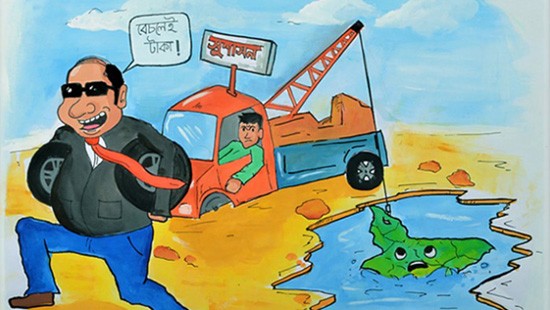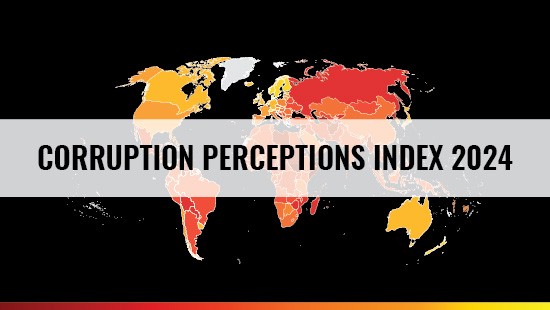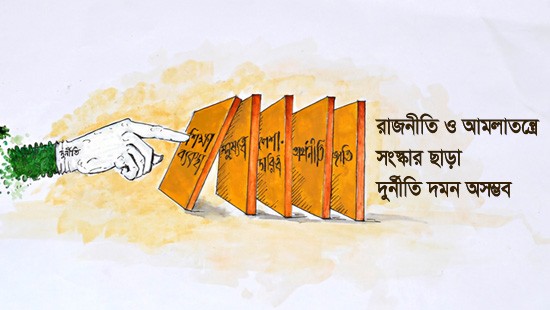Published: 14 November 2013
Anti-corruption Commission (Amendment) Bill Unconstitutional, discriminatory, self-defeating
Iftekharuzzaman
NO words can be sufficiently critical of the amended Anti-corruption Commission (ACC) Bill 2013. To say the least, the substance and process of the move is unconstitutional, discriminatory, deceitful, self-defeating and deeply disappointing.
Passed in the Parliament on November 10, the amendment, inter alia, makes it mandatory for the ACC to secure prior government permission before filing any case against public officials including judges, magistrates or public servants for alleged corruption. Section 197 of the 115 years old Code of Criminal Procedure under which courts cannot take into cognisance allegations against such individuals without proof of prior government approval will now be applicable to corruption cases.
The provision is unconstitutional. Our Constitution makes equality of all individuals binding before the eyes of law irrespective of professional or any other marker of identity. It is needless to stress how impossible it will be to secure a prior approval unless biased by partisan political consideration. It is clearly discriminatory as for all practical purposes it guarantees a special privilege to the mentioned category of individuals.
No one can suggest that all public officials can be alleged of corruption. Nor do we ignore that there may be instances of ‘act in good faith’ or that, as a distinguished minister argued, officials are often forced to act as dictated from above. But then why claims of innocence should not be left to be proved in courts rather than by the executive? Nothing can justify exemption from the due process as applicable to others — common citizens, businesspeople and other professionals, public representatives including MPs, even leader of the opposition and head of the government.
The government has demonstrated just before the end of its tenure it wanted to leave no stone unturned to under-perform against its own commitment. It needs no special effort to realise how deeply frustrating it is for the people whose vote was garnered in 2008 election with anti-corruption as one of the five top priority election pledges and a specific commitment to strengthen the Commission.
No sensible voter expects any government to deliver all commitments they make to entice votes. After all, politics is an art of making lofty pledges. But here the core agenda has been ridiculed, and that too in a deceitful manner, which may have been pushed through by those who not only benefit from corruption but also capture the policy structure. It is bound to be counterproductive sooner or later. Those who have cooked up this move can be anything but well-wishers of the outgoing government.
The provision, along with a number of other amendments, was approved by the cabinet on April 26, 2010. When it got into public domain, media, civil society and other stakeholders opposed it on the ground that it would take away whatever power the Commission had. A public opinion survey conducted soon after the cabinet decision showed that 97% of the people wanted an effective ACC. People rallied to oppose it, conducted signature campaign, online petition, text message appeals, etc. Media joined in with editorials and commentaries. Enriched by threadbare analysis of the proposed amendments, a series of policy proposals were submitted to the speaker, prime minister, leader of the opposition, MPs, relevant ministers and senior government officials. The prime minister formed a Cabinet Committee to review the proposals. A delegation of relevant MPs and officials was sent, spending donor money, to a few Asia-pacific countries in an effort to generate an informed stance.
All these led to a reported a change of mind, resulting in some ministers and Standing Committee members pronouncing that the special privilege was unacceptable. Hopes were rekindled that the government may not yield to the evil design. The bill was kept pending since then, as it has now emerged, only to deceitfully re-insert the provision. There has been no consultation or communication with the stakeholders who were once heard. The matter was kept secret until it got passed without any discussion by the power of “voice vote,” totally disregarding public opinion and interest.
To be fair, a few welcome provisions have been made in the amended version of the law — mandatory disclosure of corruption related information by such bodies as NBR, law enforcement agencies, CAG and Bangladesh Bank upon ACC’s request; retaining the appointment of the secretary in ACC’s jurisdiction; confidentiality of information provider; etc. These are but peanuts compared to the big one, which by all indications will render the ACC into an oft-quoted toothless and clawless fat cat.
Those few in ACC who could have the courage and skill to initiate effective action will be deterred, not only by this but also for another provision that lodging a so-called ill-motivated case will warrant 2-5 years imprisonment. On the other hand, those who would be reluctant to be proactive for lack of capacity and/or partisan or other consideration will find the provision a handy pretext for inaction.
It will be no less embarrassing for the government in the eyes of international stakeholders. As widely expected, negative response has already come from some such quarters which may be considered by many to be outside their mandate, rightly or wrongly. Be that as it may, consider also the fact that Bangladesh as a state party to the UN Convention against Corruption is going to have a hard time defending the move in the Conferences of States Parties to be held in Panama City in couple of weeks and way beyond it. No mincing of words is going to help.
So, what next? With all naivety we call upon the prime minister to show the courage to reconsider the matter as she did in 2011, and take the lead to amend the bill again to scrap this highly self-defeating provision. However wishful it may sound, we may also expect the president to decline to consent. More realistically, what we need is to continue to strengthen the public voice and demand engaging the media and people at large. We may be encouraged by the support of “champions” in government and politics, who may also feel frustrated today but cannot give up. It is a relentless struggle for those who want change.
Note that this is not the first move to render ACC ineffective. The four-party alliance government, by a disgraceful move in 2004, appointed the commission leadership under partisan consideration, who indulged for nearly three years in nothing but mutual bickering that laid the foundation of an ACC that now carries the baggage of the former Bureau of Anti-corruption. This also explains why the opposition is least bothered by what happens to ACC.
It remains an uphill journey through slippery slopes — a few inches forward, few backward. One can only bring the horse to water, but can hardly force it to drink unless it feels thirsty enough.
The writer is Executive Director, Transparency International Bangladesh (TIB).
This article has been published in  on November 14, 2013
on November 14, 2013







